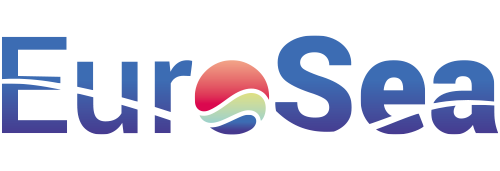
Description
In a rapidly evolving marine research landscape, achieving seamless integration across various platforms necessitates a uniform approach. The initiative to foster improved interoperability through the creation and adoption of best practices underscores a commitment to elevating the standards of marine monitoring and data collection. By introducing and evangelizing these best practices via sustained repository access and extensive training and presentations, the goal is to establish a common framework, enabling diverse marine research entities to collaborate more effectively, thereby streamlining operations and enhancing data quality.
Impact During the Project
The focus is on propagating the adoption of best practices by conducting numerous training sessions and presentations. These sessions aim to introduce, educate, and promote the creation and utilization of these best practices for improved interoperability in marine monitoring and data collection.
Measure: The success and reach of this initiative during the project phase is quantified by tracking the number of training sessions and presentations held on the subject.
Impact Post Project
Contribution to Ocean Best Practices System (OBPS): Post-project, the measure of impact is reflected in the number of contributions made by EuroSea to the OBPS. This showcases how the project’s best practices have been recognized and incorporated into a larger, global framework.
Downloads of EuroSea-Created Best Practices: A key post-project metric is the number of times the best practices formulated by EuroSea are downloaded from the OBPS. This indicates the global acceptance, adoption, and utility of these best practices in real-world scenarios.
Advancement over and above State of the Art
Standardization: The emphasis on creating best practices implies a move towards standardization. This is crucial for interoperability as data and processes from different sources become compatible due to adherence to a common set of guidelines.
Capacity Building: The number of training sessions and presentations indicates a proactive approach to building capacity in the sector. Instead of just creating best practices, there’s an active push for their adoption through education and outreach.
Global Recognition: Contributions to OBPS signify that the best practices formulated are not just locally relevant but have a broader, global appeal and applicability.
Real-World Utility: Downloads from OBPS serve as a tangible metric of the real-world utility of these best practices. High download numbers indicate that these practices are not just theoretically sound but are being adopted and applied in real-world scenarios.
In summary, by emphasizing the creation, permanent accessibiity, dissemination, and adoption of best practices, the project signifies a move beyond isolated, ad-hoc methodologies. It advances towards a standardized, globally recognized approach that enhances interoperability and consistency in marine data collection and analysis. This structured approach represents a significant step forward from the traditional state of marine monitoring and data handling.
Links and References
Link to D3.11- Eulerian Best Practices: https://eurosea.eu/download/eurosea_d3-11_eulerian_best_practices-2/?wpdmdl=5540&refresh=650197c6ce2771694603206
